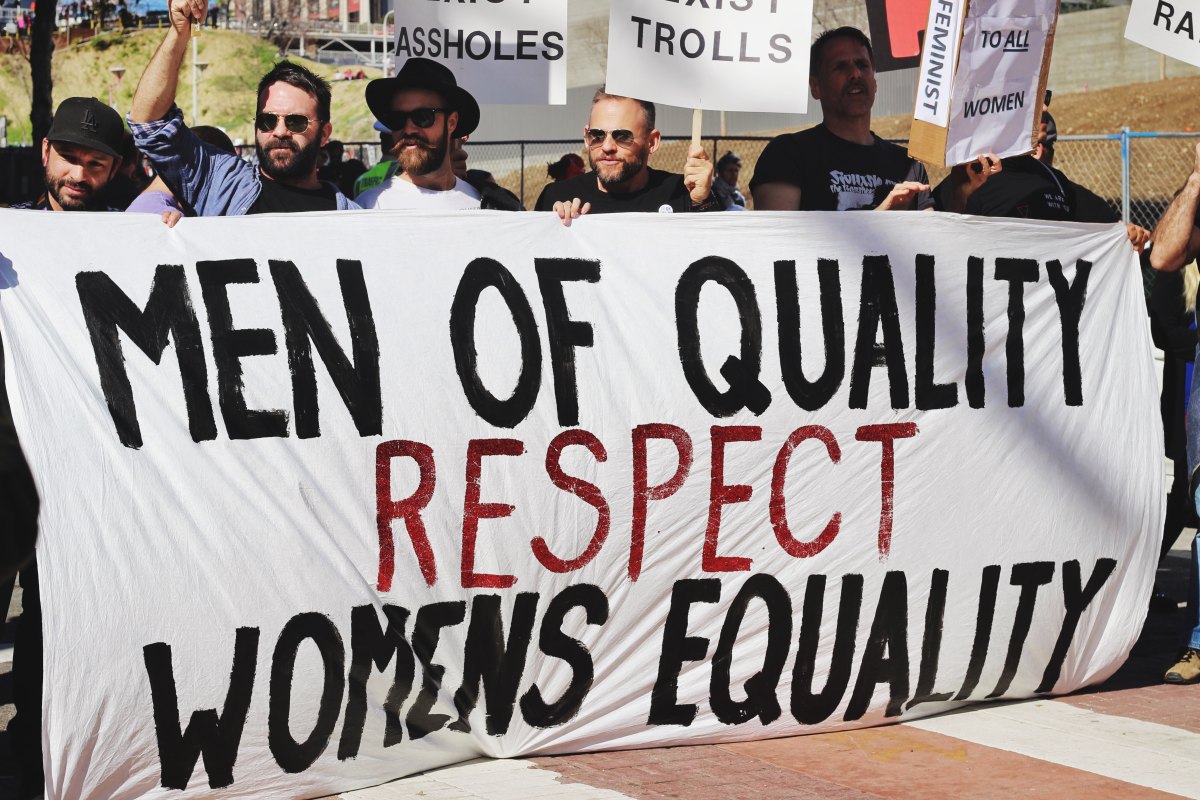The other day at dinner, we were all at the table, and you said something about “Trump.” I corrected you, told you to insert a “Mr.” and you did. Then, you went on with your story.
Since then, I’ve had a couple moments reflecting upon that parental intervention. I’ve questioned my response like I often do with you. Was it right? Where was I coming from? Was my approach authentic to the best parts of my upbringing, the parts that I want to pass on to you and to your brother?
And I’m thinking over the goods and bads of that insertion. That Mr. comes with problems. I didn’t go into the problems then, though they were on the borders of my thinking. I’m your father and a part of my role is to regularly be as close to my best thoughts as I can be because you and your brother come up with all kinds of things I want to affirm, correct, question, laugh at, or otherwise capture. It takes energy to be present. It takes energy to be a good father. I want to be both with you and number two. So the Mister.
In some ways, we’ve already discussed portions of the problematic insertion. In some ways, explaining myself at the time would have gotten us off the important point you were making and pulled us away from the more pressing matter of what you wanted to say. But this is why I blog, to post up little indications of increasingly critical and vulnerable discourse so that you and your brother will have trails of thinking where I’ve said my piece, made my peace.
There are issues with my suggestion about the current person sitting in the Oval, the broad white structure made by a lot of beautiful black hands and recently inhabited by a beautiful black family, the family there when we traveled to DC as a family so we could trek through the Museum while our president was Barack Obama.
First, everyone is worthy of being treated like a person. In my quick move to tell you how to put a handle on a last name, I was foundationally trying to say that you should treat “Trump” the way you’d treat anyone who was an adult and that isn’t by saying there name.
Second, this is an admittedly cultural application. You know people, some of them are your friends, who call people by names without handles, but that’s not the family you are being raised in, is it? Black people have conventionally raised each other to be honorable and that honor is expressed by an enduring respect for elders. That respect is easily translatable to others who aren’t old but who are older than you.
Third, you cannot restrict yourself to the limited experiences of people who use language irresponsibly. For better and worse, I am your father. You and your brother have inherited the godparental influence of Auntie Pat who on too many long rides corrected me and Uncle Mark and who wouldn’t let us get away with poor speech. I am passing that on. Of course, she has told you some of these stories herself. Both me and your dear mother are communicators in our own ways. There are certain phrases you must use, certain ones I’d strongly encourage you not to use.
Fourth, adults are adults. When you become an adult–and I plan to tell you precisely when that occurs!–those who are older are elders. As I said, adults and elders generally must be treated as, among other things, containers of deep wisdom. This comes out of your African heritage. It isn’t constricted only to blackness but it is certainly in your blackness. Your lineage includes honor for the elders.
I was coming out of these points of view. However, and now we turn toward the paradoxical and toward the ways I’m encouraging you to second-guess me and toward ways I’ve second-guessed myself on this comment at the table, some people are not worth your Mr. Some people–and I’d include this person in the Oval–are not worth your respect.
There are males who are only men by virtue of their maleness, who do everything to diminish your view of them because of how they conduct themselves in the world, and those males are not worthy of your respect. They may well be worth your acknowledgement of them as human beings, but they are unworthy of your respect. The men in your life, me among them, are aiming to teach you in how to discern which qualities make a man respectable. For now–and at the table–I was intervening, showing you this current example of a man who is unworthy.
You know because of how you are being raised by your dear mother, by me, and by our extended family (the plural collective that I’m collapsing in the singular term) that your respect is hard-won. Your respect is an indication of what it took for you to develop an idea of personhood broadly and manhood in (this) particular.
You have seen and loved and been by and loved by good men. For quick instance, your uncles are good men. All of them. For another instance, I am a good man. We are teaching you to respect yourself and how that respect is immediately and intricately related to respect for others. Since it’s hard-won, you ought not give away easily.
Giving your honor to a person means that you are extending to him or her some part of you that they ought to be able to accept, take in, and appreciate. People ought to be able to receive you, receive the pearls that come from you to use a biblical allusion. The man is the Oval, the current president of the country, is not one of those people. Again, this is complicated so I need to tell you more about why I’m offering a well-situated exception to the rule.
The current president, as you have told me, has been unkind to many people. This was a part of your heartbreak when he was elected. You remember how excited you and your peers were to vote in school, how surprised and perplexed you were when the man who said “those bad things about Mexicans and women” won. He has called for the harm of individuals and families. He has repeatedly told lies. He has admitted to participating in sexual assaults against women. He has deceived. He has consistently misapplied sacred texts, a devious consequence when a person is not a part of a sacred community. He has made decisions based upon people he knows and not taken the wide grace of counsel beyond his own comforts. He has encouraged violence and engendered, insofar as is possible for his talent, a national culture of division. He has been a successful businessmen in the United States of America without any real historically visible integration of spirituality which says more of the same. These may be true about other political misters but it has been documented by others in this president’s case and it has been experienced by you in your own life.
The current president will not always be the president. We will have others. So govern yourself accordingly. You can respect his personhood without extending to him what he would not extend to you. You can respect his personhood without accepting the type of masculinity that he models.
I wish I could tell you to use me as a guide. In some ways, you necessarily use me as a guide and measure of manhood. That is a delightful, bruising, high burden for me. But I’m imperfect as I often tell you. What I’m happy to do is point to the very contours from which you will judge me and judge others. Use these mentionings to hold me to the accountability of your best notions of respect. And use them to judge others too. They’re good enough for that, these cultivated ramblings.










 Last month I had the opportunity to visit my mentor and father-friend, Dr. Johnathan Alvarado, on the occasion of his 50th birthday. His wife, Dr. Toni Alvarado, invited a collection of colleagues, parishioners, friends, and extended family to a party. I stayed for the full weekend as we celebrated him. I had the chance to represent those who JEA have mentored over the years—in my case, nearly 25 years.
Last month I had the opportunity to visit my mentor and father-friend, Dr. Johnathan Alvarado, on the occasion of his 50th birthday. His wife, Dr. Toni Alvarado, invited a collection of colleagues, parishioners, friends, and extended family to a party. I stayed for the full weekend as we celebrated him. I had the chance to represent those who JEA have mentored over the years—in my case, nearly 25 years.

